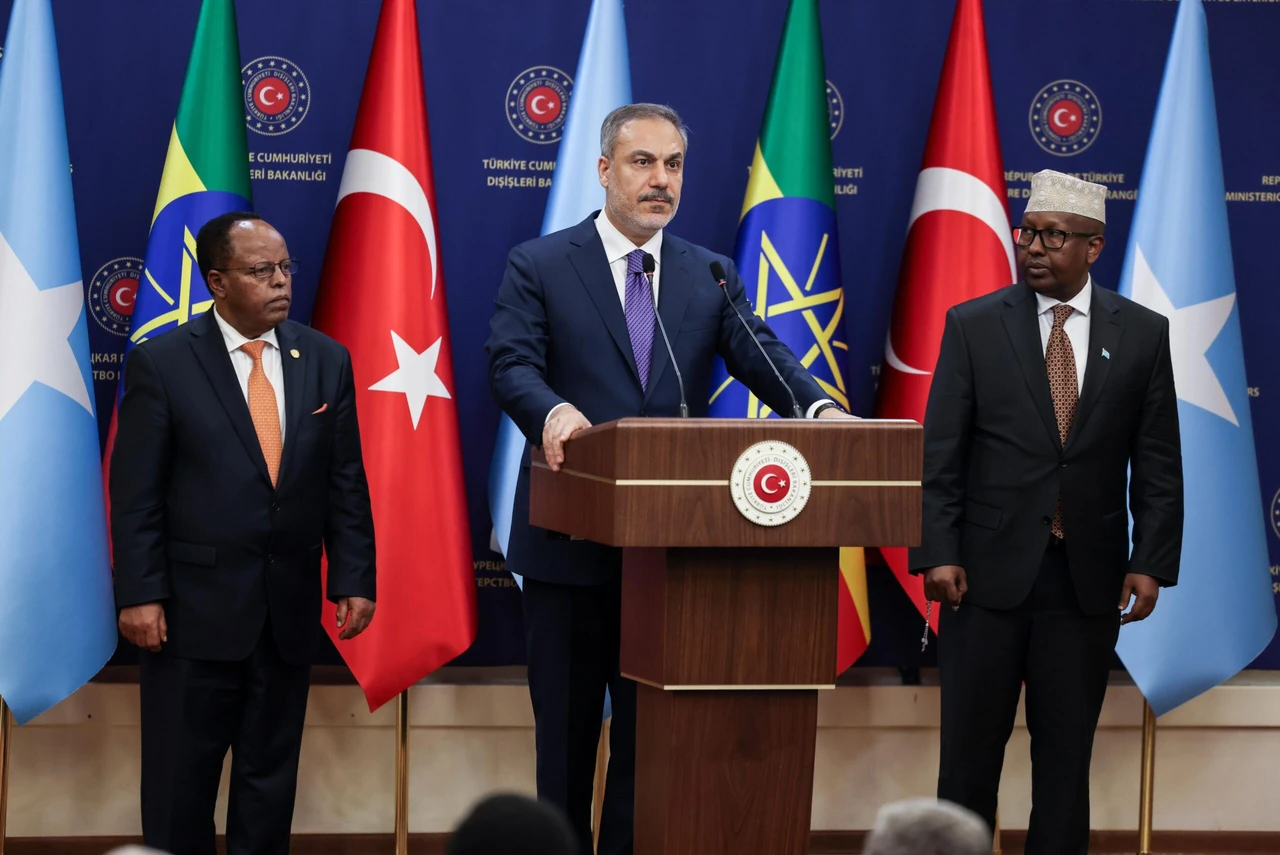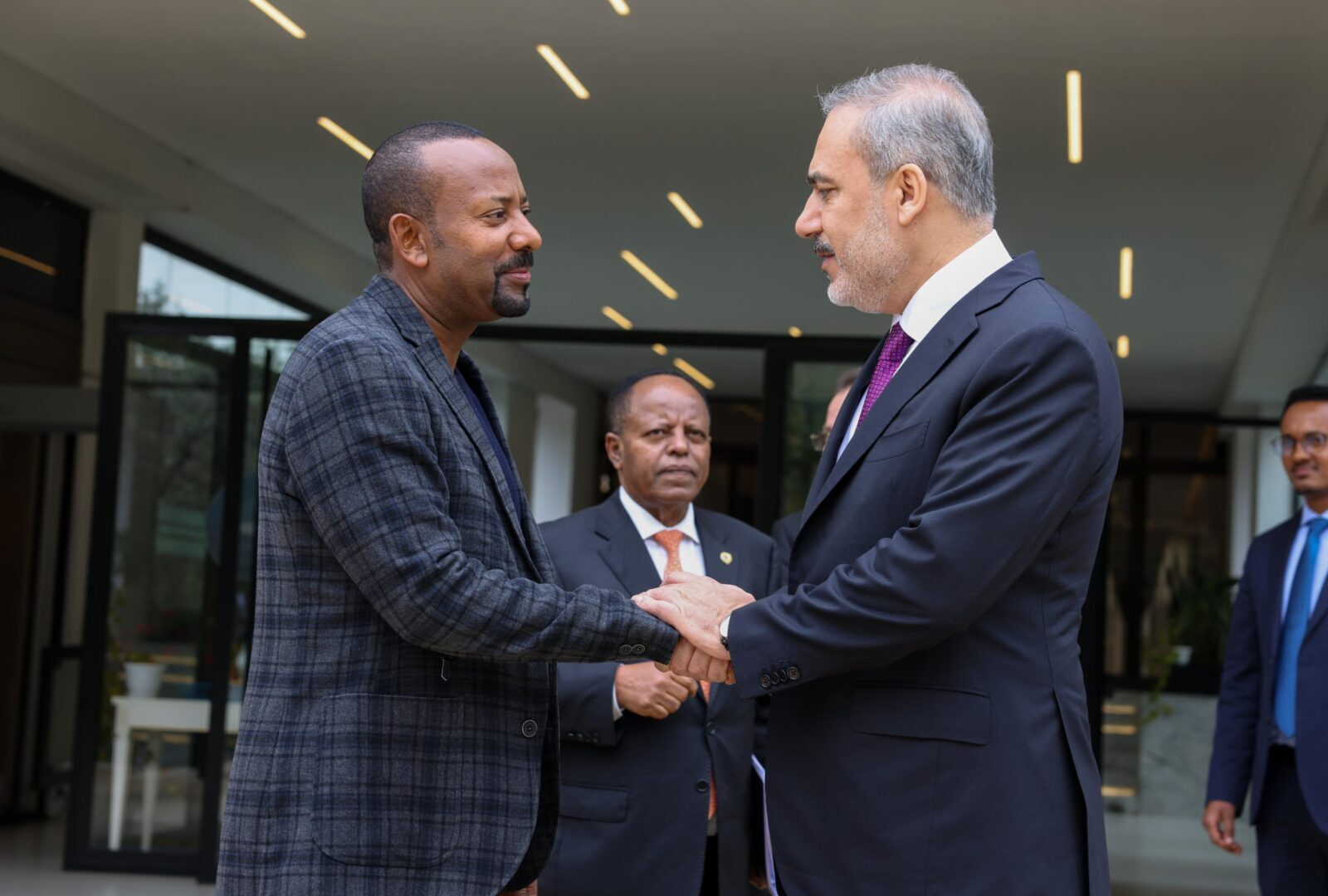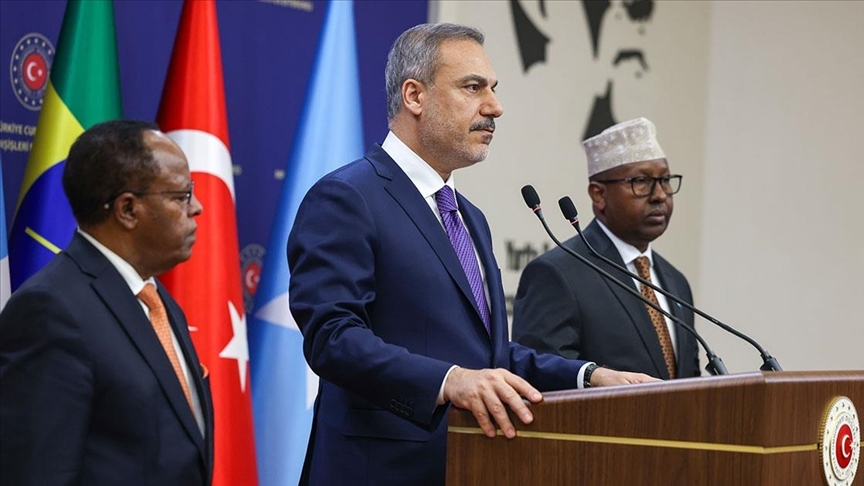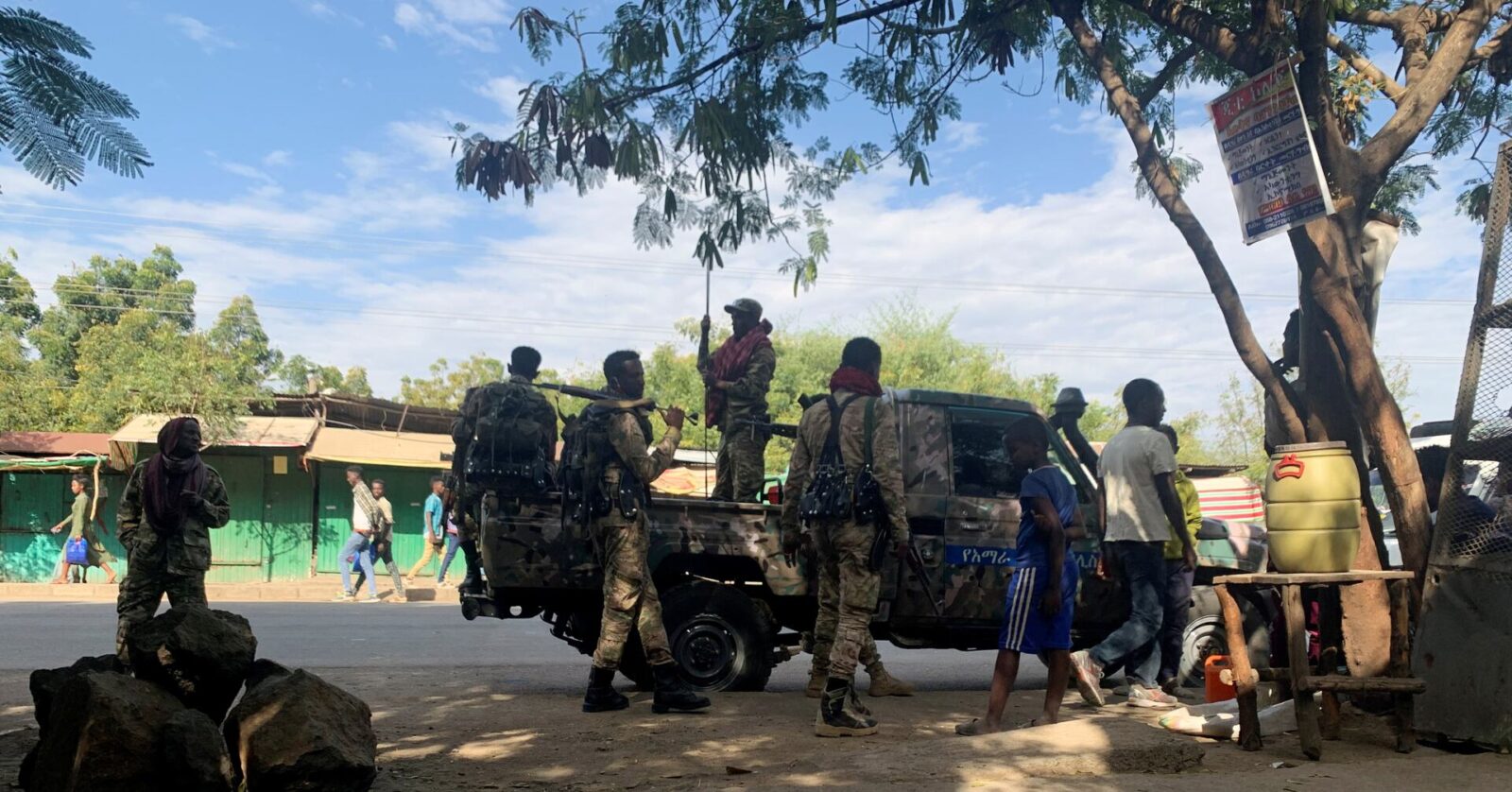Ankara mediation talks between Somalia, Ethiopia postponed
 Upon the invitation of the Minister of Foreign Affairs of the Republic of Türkiye, Hakan Fidan, the Minister of Foreign Affairs of the Federal Democratic Republic of Ethiopia, Taye Atske Selassie, and the Minister of Foreign Affairs and International Cooperation of the Federal Republic of Somalia, Ahmed Moallim Fiqi, met in Ankara on July 1, 2024. (via Turkish FM)
Upon the invitation of the Minister of Foreign Affairs of the Republic of Türkiye, Hakan Fidan, the Minister of Foreign Affairs of the Federal Democratic Republic of Ethiopia, Taye Atske Selassie, and the Minister of Foreign Affairs and International Cooperation of the Federal Republic of Somalia, Ahmed Moallim Fiqi, met in Ankara on July 1, 2024. (via Turkish FM)
The third phase of mediation talks between Somalia and Ethiopia, known as the Ankara Process, has been reportedly postponed.
The meeting, initially scheduled for Sept. 17, was deferred without an official explanation.
Despite the delay, Türkiye remains committed to mediating the escalating tensions between the two neighboring countries.
Some sources say the cause for the delay is because of the tension caused by Egypt’s deployment of troops to Somalia and no date has been set.
The Ankara Process was designed to facilitate dialogue between Somalia and Ethiopia, two countries facing increasing conflict, with Türkiye acting as a neutral mediator.
President Recep Tayyip Erdogan has been actively involved in these diplomatic efforts, engaging both sides in direct talks and advocating for peaceful resolutions.

Türkiye’s role in Somalia-Ethiopia mediation
In May, Ethiopian Prime Minister Abiy Ahmed Ali reached out to President Erdogan, requesting Türkiye’s help in resolving the conflict with Somalia.
Shortly thereafter, Somalia also sought Ankara’s involvement, prompting President Erdogan to instruct Foreign Minister Hakan Fidan to address the growing crisis.
On July 1, Foreign Minister Fidan hosted the first round of talks in Ankara, attended by Ethiopian Foreign Minister Taye Atske Selassie and Somali Minister of Foreign Affairs and International Cooperation Ahmed Moallim Fiqi.
The meeting concluded with both sides expressing a mutual commitment to resolving their differences through peaceful means.

Postponed Somalia-Ethiopia negotiations
A second round of discussions was initially set for Sept. 2, but following high-level consultations with the Somali delegation, the meeting was rescheduled to Sept. 17. However, the meeting has now been postponed indefinitely, with no clear reason provided for the delay.
Since the launch of the Ankara Process, Türkiye has engaged other regional countries to help facilitate the mediation efforts. Erdogan also underscored the strengthening of the relationship between the two nations and reaffirmed Türkiye’s commitment to reducing tensions between Somalia and Ethiopia.
The cause of postpone?
The cause of postpone on negotiations might be related to Somalia’s Minister of Foreign Affairs, Ahmed Moalim Fiqi’s recent reported statement: “Somalia may consider establishing contacts with and supporting rebels fighting the Ethiopian government if Ethiopia proceeds with its recently signed agreement with Somaliland” Fiqi’s comments were made during an interview with Universal TV on Sept. 12.
“The option to have contacts with armed rebels in Ethiopia or rebels that are fighting against the Ethiopian regime – if it continues this, to have contact with them is an option open to Somalia,” Fiqi said.
However, he emphasized the situation had not yet reached this stage, expressing hope for a diplomatic solution.
Somalia’s response to the Somaliland agreement
The agreement, signed in January 2024, between Ethiopia and the self-declared, breakaway republic of Somaliland, has strained relations between Somalia and Ethiopia.
According to Somaliland officials, Ethiopia agreed to recognize Somaliland’s independence for leasing 20 kilometers (12 miles) of seashore for use as a naval base for 50 years.
Somalia views the deal as an infringement on its sovereignty.
Fiqi warned that if Ethiopia continues with this agreement, Somalia might be forced to take drastic measures, including aligning itself with Ethiopian rebel groups.
“We have not reached that stage, but it’s a path open to us … it’s the correct thing to go there, to take that path to meet them, to support them, to stand by them (the rebels).”

When asked if Somalia was considering supporting the Tigray People’s Liberation Front (TPLF), a rebel group that fought a bloody two-year conflict against Ethiopia until the Pretoria Cessation of Hostilities Agreement in November 2022, Fiqi replied: “We discussed that, but at this time the collapse of Ethiopia is not in the interest of Somalia and the Horn of Africa region.”
Ethiopia’s deputy permanent representative to the African Union and United Nations Economic Commission for Africa, Nebiyu Tedla, responded harshly to Fiqi’s remarks.
“It’s comical to witness al-Shabab agents posing as government officials, who are unable to function effectively outside of Banaadir (the Mogadishu area) babbling hollow nationalism,” Nebiyu posted on X (formerly known as Twitter).



